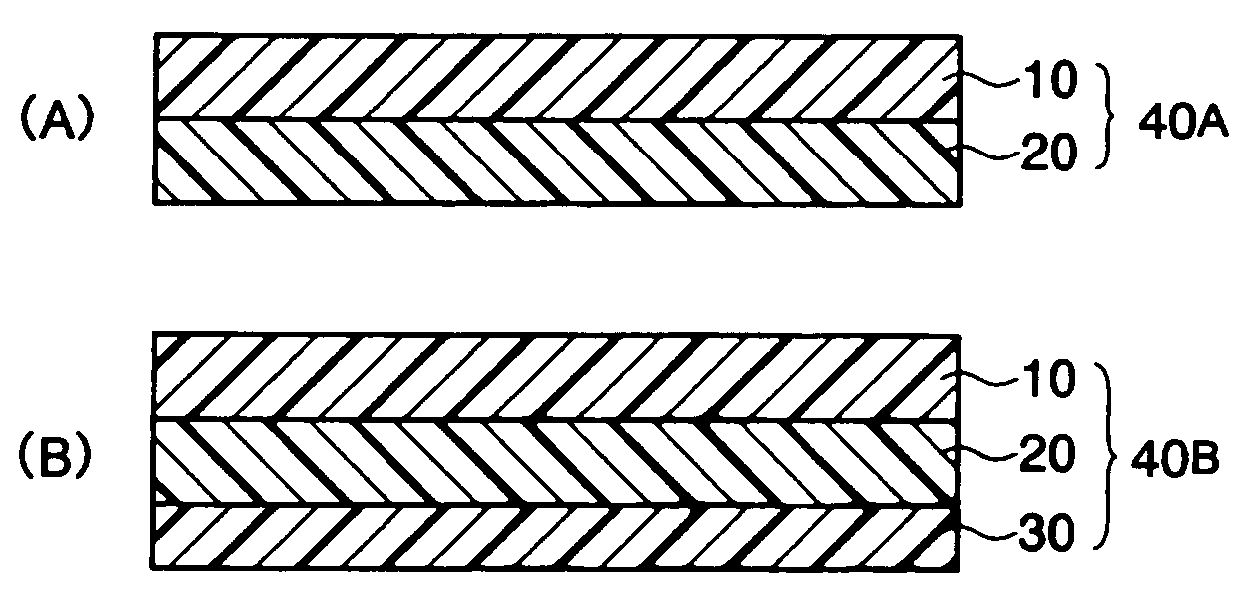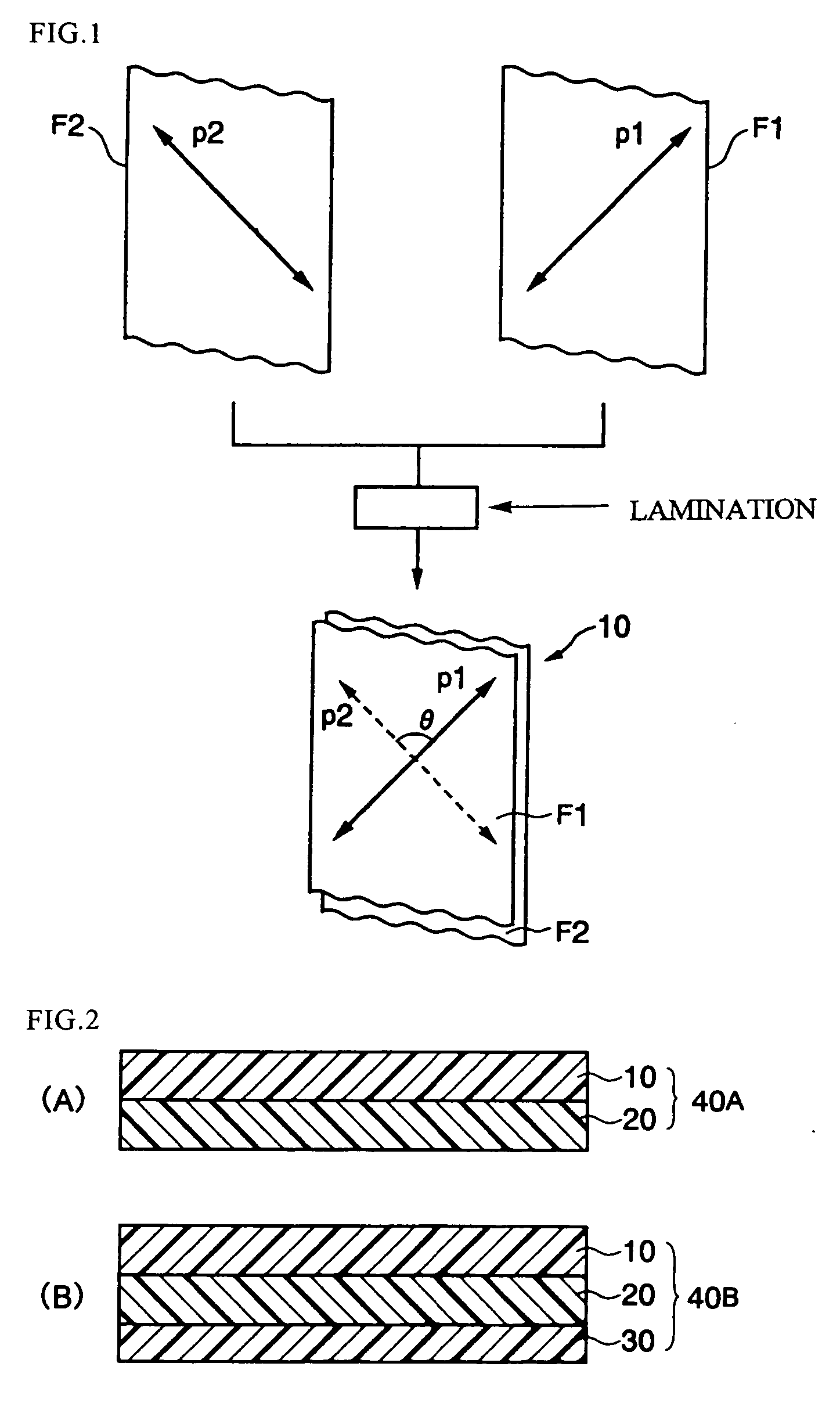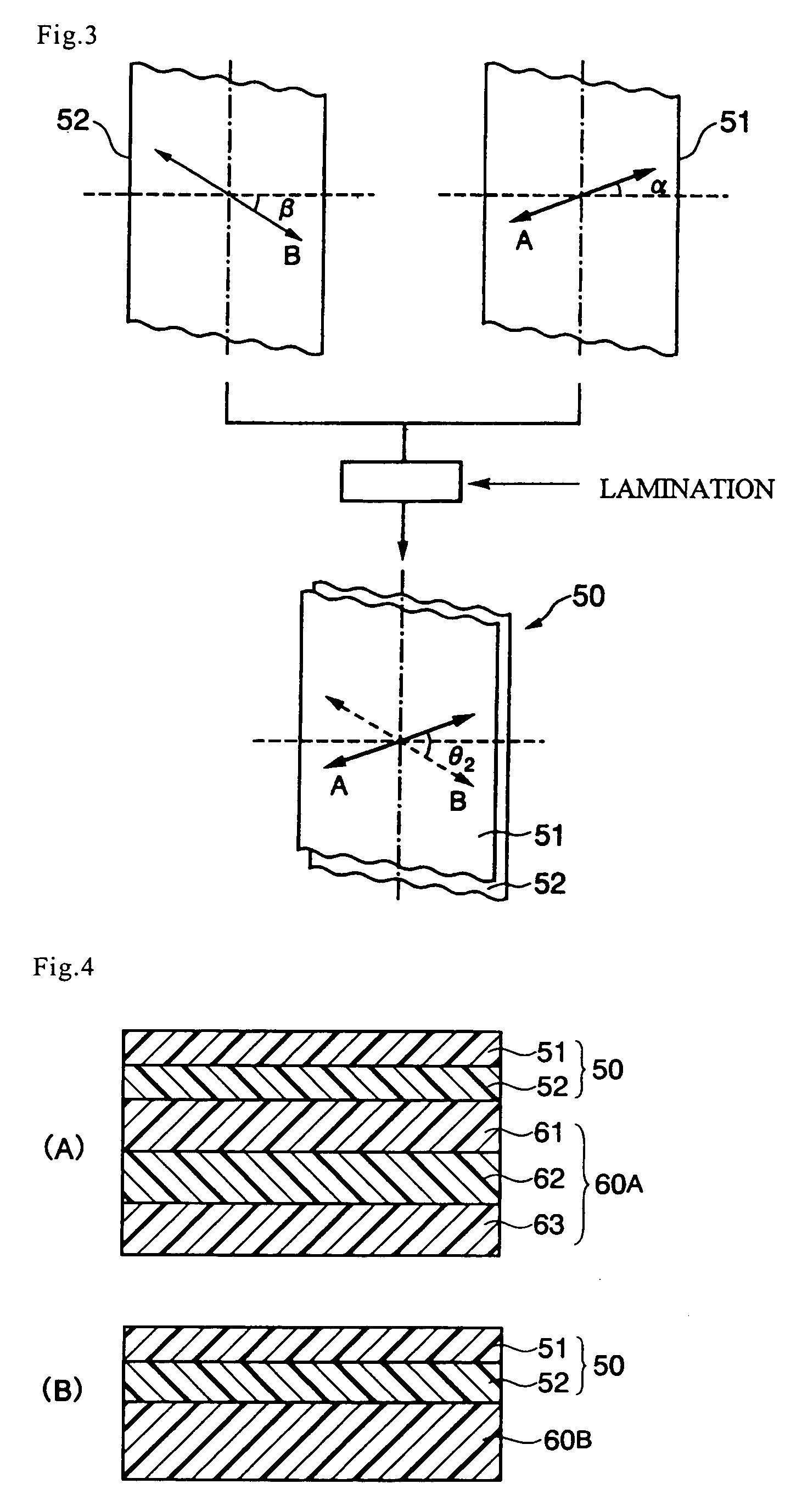Optical laminate
a technology of optical laminate and optical slit, which is applied in the field of optical laminate, can solve the problems of loss of raw materials, degrade production efficiency, and degrade production efficiency, and achieve the effect of high optical characteristics and high production efficiency
- Summary
- Abstract
- Description
- Claims
- Application Information
AI Technical Summary
Benefits of technology
Problems solved by technology
Method used
Image
Examples
manufacturing example 1
[0136] Under a nitrogen atmosphere, 500 parts of dehydrated cyclohexane, 0.82 parts of 1-hexene, 0.15 parts of dibutylether, and 0.30 parts of tri-isobutylaluminum were poured in a reactor to mix them together at room temperature. While keeping the temperature of the mixture to 45° C., there were added continuously for two hours a norbornene-base monomer mixture consisting of 80 parts of tricyclo[4,3,0,12,5]deca-3,7-diene (dicyclopentadiene, (hereinafter referred to simply as DCP)), 70 parts of 7,8-benzotricyclo[4,4,0,12,5,17,10]deca-3-ene (methanotetrahydrofluorene, (hereinafter referred to simply as MTF)), and tetracyclo[4,4,0,12,5,17,10]dodeca-3-ene (tetracyclododecene, (hereinafter referred to simply as TCD)), and 40 parts of tungsten hexachloride (0.7% toluene solution), thus executed polymerization. To the polymerized solution, 1.06 parts of butylglycidylether and 0.52 parts of isopropyl alcohol were added to inactivate the polymerization catalyst to stop the polymerization re...
manufacturing example 2
[0140] The pellets obtained in Manufacturing Example 1 were dried in a hot-air drier with streaming hot air at 70° C. for 2 hours. The dried pellets were fed to a T-die film melt-extruder having a resin melting and kneading machine provided with a 65 mm size screw, thus formed an extrusion film having 100 μm of thickness under the condition of 240° C. of molten resin temperature and 500 mm of T-die width.
example 1
Manufacture of Optical Laminate
[0141] The film obtained in Manufacturing Example 2 was heated to 135° C., and was fed to the tenter-stretching machine shown in FIG. 9 to conduct continuous oblique-stretching thereto, thus obtained long stretched film having a stretch rate of 1.3 fold and an angle of delayed-phase axis to the width direction of the film of average 45 degrees. The tenter-stretching machine shown in FIG. 9 conducts oblique-stretching of film by moving left and right tenter clips (200) at an equal speed with each other, and by bending a film travel passage (220) while stretching a film (210) in the width direction thereof. The tenter-stretching machine provides a stretched film (230) having an angle θ (45 degrees in this case) between the delayed-phase axis and the film width direction.
[0142] The thickness, the content of volatile component, and the saturated water absorption of thus obtained stretched film were determined using the above-described respective methods ...
PUM
| Property | Measurement | Unit |
|---|---|---|
| Fraction | aaaaa | aaaaa |
| Angle | aaaaa | aaaaa |
| Angle | aaaaa | aaaaa |
Abstract
Description
Claims
Application Information
 Login to View More
Login to View More - R&D
- Intellectual Property
- Life Sciences
- Materials
- Tech Scout
- Unparalleled Data Quality
- Higher Quality Content
- 60% Fewer Hallucinations
Browse by: Latest US Patents, China's latest patents, Technical Efficacy Thesaurus, Application Domain, Technology Topic, Popular Technical Reports.
© 2025 PatSnap. All rights reserved.Legal|Privacy policy|Modern Slavery Act Transparency Statement|Sitemap|About US| Contact US: help@patsnap.com



